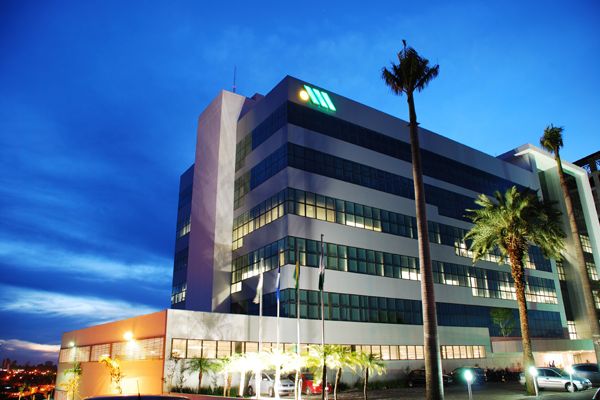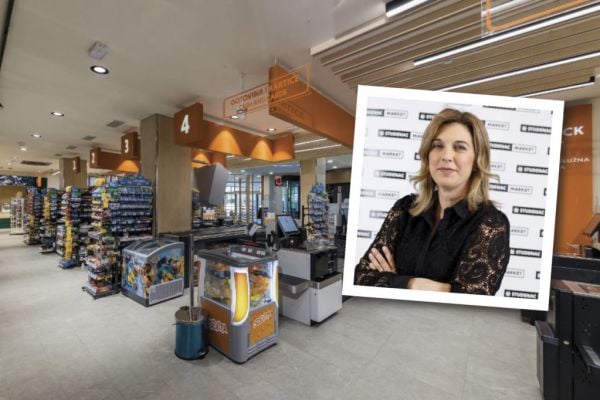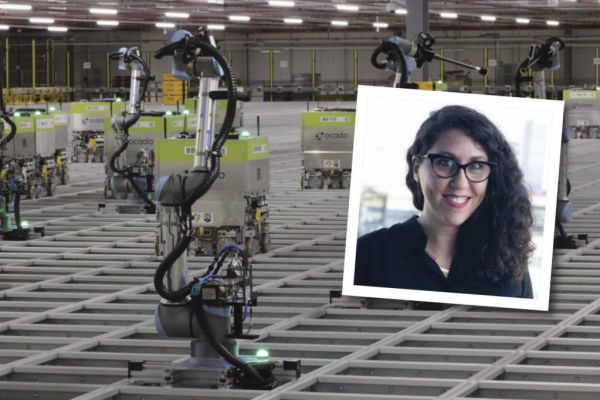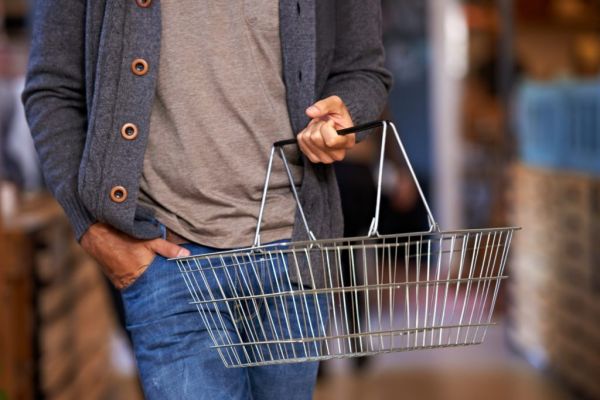Blairo Maggi, the Brazilian farming mogul nicknamed the “King of Soy,” was set to take a short leave from his post atop the Agriculture Ministry when the country’s tainted-meat scandal broke out in March. No matter. He sprang immediately into action -- or, as he put it, “into war.”
To help prosecutors in their efforts to clean up the powerful meat industry?
No, Maggi was in damage-control mode. He helped coordinate a meeting with dozens of ambassadors, scolded the head of the federal police, secured an army plane to shuttle foreign media to a chicken plant and phoned top executives at meatpackers large and small, Maggi said in an interview. His sleep-deprived efforts would prove crucial in minimizing the damage to the $75 billion-a-year business, persuading key overseas markets such as China to quickly lift import bans.
But if Maggi, 60, can be credited with helping illustrate how prosecutors had overstepped in some of their more salacious claims -- there’s no evidence of cardboard in Brazil’s meat, for instance -- he also can be questioned for downplaying the elements of the probe that experts find much more probable, namely the possibility of corrupt food inspectors in his own ministry. And therein lies the concern about a rare rising star in a country where most key policymakers have been tarnished by scandal: Is Blairo Maggi too conflicted to properly oversee the world’s No. 1 agricultural exporter?
“He can always claim what he does as agriculture minister is of national interest, although it will always be of personal interest, as well,” said Thiago de Aragao, director of strategy at political consultancy Arko Advice. “It’s very hard to separate the two.”
Seed Company
Maggi’s family-owned business, Grupo Amaggi, started as a seed company founded by his father in 1977. He became president in 2001, as the company began its evolution into a behemoth landholder, exporter, logistics player and even power generator.
Maggi retains a 16 percent stake but said he and his family have been out of management for many years.
“I know where I’m stepping and what the differences are,” Maggi said, denying any conflicts. “I’ve even fought some sectors, saying that we need less subsidies and more productivity.”
Maggi started dipping into politics more than a decade ago and in 2003 was elected governor of Mato Grosso state, where Amaggi has its soy plantations. He then parlayed his considerable network of agriculture-sector supporters into a Senate seat in 2010, a position he held for the next six years as his company saw revenue grow to 12.7 billion reais ($4 billion) in 2015. His name has even been bandied about as a presidential candidate in next year’s election.
“Whether through politics or through business, I know everyone in the sector,” Maggi said in the Agriculture Ministry’s Sao Paulo office. “So it’s easier to call someone up and get a feel for things, see what’s happening. I do that a lot.”
Road Building
Yet even as his stature grew, his dual roles as officeholder and businessman dogged him. While governor, for example, he oversaw the state’s program to pave more than 1,000 kilometers (621 miles) of roads so grain producers, including Amaggi, could readily transport their goods to benefit from the commodities boom. More recently, he’s supporting a bill to let foreigners purchase rural land but argues they shouldn’t grow soy or corn, Amaggi’s primary crops. He says low international prices might deter foreigners from planting crops that exporters and chicken producers have come to depend upon.
Maggi also advocated for a railroad for Mato Grosso’s exports that would run through Amazon jungle alongside an existing highway and has continued doing so since joining President Michel Temer’s cabinet last year. The 12.6-billion-reais project could receive subsidized financing from the government, which bills it as having “unquestionable strategic value” for the economy. But while the state’s producers desperately need a reliable northward export route, the railroad would also benefit Maggi’s company. It is a potential bidder to build the railroad and has a 50 percent stake in a transfer station, port terminal and barge fleet at the rail’s proposed terminus.
Foreign Purchases
“Even I think he’s doing a good job as agriculture minister,” said Antero Paes de Barros, who’s run for office against Maggi in Mato Grosso. “He’s making viable important projects, but he’s taking care of his interests.’’
Maggi said his ministry isn’t involved in the railroad project and won’t be evaluating bids. He’s been careful to avoid conflicts of interest, he added. When Temer’s predecessor, Dilma Rousseff, invited him to be transport minister, he declined because Amaggi for years has received government loans to develop an Amazon waterway.
His general policy as agriculture minister is guided by “more competitiveness, less government influence, de-bureaucratization of processes and letting farmers make decisions freely, but also responsibly.’’
Illegal Logging
During Maggi’s transformation from businessman to statesman, he worked to shake his image as an unrepentant deforester. He started a satellite system to prevent illegal logging in Mato Grosso and sought input from environmentalists to give incentives for reforestation that became the precedent for the national Forest Code. Greenpeace thanked him with a box of treats made from Amazonian fruit.
Environmentalists are less enthusiastic now. Paulo Barreto, senior researcher at Imazon, an environmental NGO, said Maggi was just “paying lip service’’ to forest protection. Last year, Maggi sponsored a bill that would loosen environmental licensing for large infrastructure works and has supported reducing conservation areas, Barreto said. In a February statement, Maggi said changing the classification of one of Brazil’s most deforested Amazon parks would regulate the area’s development.
As Maggi gains political capital, his past could weigh him down. Along with dozens of other Brazilian politicians, Maggi’s name has surfaced in various corruption probes involving bribery and money-laundering.
“My conscience is at ease because I didn’t do anything wrong,” Maggi said. “I don’t lose sleep over it.”
Presidential Run?
He’s also resting easier now that he’s contained the tainted-meat scandal, but the next step, he said, is more complicated: persuading consumers abroad to once again buy Brazil’s products. He is planning a trip to Asia and the Middle East to try to gain market share, one of his top goals even before the crisis.
His performance during the scandal prompted his party to discuss running him for president in 2018. His election would be a longshot, to be sure. But an agriculture minister even being considered is testament to the pivotal role farming and related industries play in Brazil, accounting for about a quarter of the nation’s economy.
“Being a candidate or a president shouldn’t be anyone’s personal project; these things have to happen naturally,’’ Maggi demurred. “If I were a candidate, perhaps I’d get the majority of votes from the agriculture sector, but what about the rest of society?”
News by Bloomberg, edited by ESM. Click subscribe to sign up to ESM: The European Supermarket Magazine.














